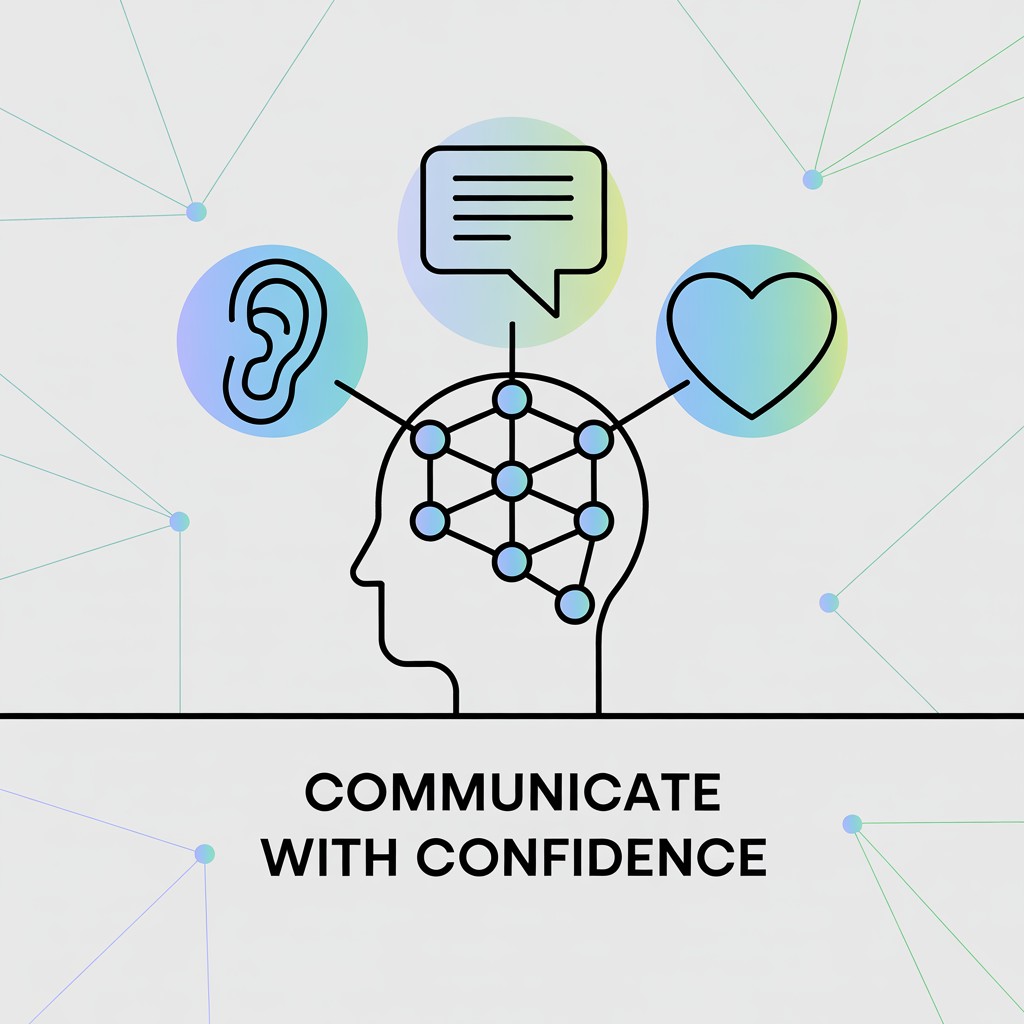We are all communicators, and we do it daily, but communication is not always easy. Good communication means a lot, whether talking to your friends or colleagues or communicating when sharing ideas. The thrilling part is that nowadays, artificial intelligence- or AI- is coming to our rescue as it tries to assist us in enhancing these competencies. Not only are AI tools useful in providing us with prompt feedback, but they are also useful in coaching us on how to conduct a conversation. In this article, we will look into how AI can assist you and help you improve your communication skills in simple and practical ways.
The Relevance of Communication Skills
Good communication is the main part of strong relationships and the communication of your ideas. This can be different when conversing with your friends, working with colleagues, or addressing a crowd. However, this is not always simple; we can not always come up with the right words, listen, and comprehend people. Such issues may arise from miscommunication or lower self-confidence.
This is why it is crucial to enhance communication skills. It makes it easier to interact with other people, find solutions, and even be more comfortable with ourselves. The best part is that, due to AI, learning and practicing such skills has never been easier or more available.
The Support to Communication Skills Done Using AI
Artificial intelligence is rapidly becoming an auxiliary resource to everyone who wants to enhance the quality of interactions. Many apps and programs that exist today provide you with feedback, practice, and coaching based on your needs and run on AI. For example, certain AI devices can listen to what you say and recommend how you can articulate or present yourself more appealingly. Other people may assist in writing by correcting the grammar, giving you different words that sound better, or making your tone of voice friendlier and captivate the attention.
A well-known AI communication coach, Poised, gives real-time feedback throughout a call and a presentation, allowing you to change your speaking manner. Writing tools such as Grammarly will analyze your messages or emails, correct mistakes, and advise you on areas to improve so that you can be able to write better and with ease. Of course, there are AI tools that will assist you with public speaking as they will mimic a real conversation and provide you with advice on pace, tone, and body language.
In addition to error correction activities, AI makes you more conscious of your communication style. It is also able to highlight such practices as filler word usage or talking too quickly, which you may not realize. Such individually carved feedback is tantamount to having a coach on call at any time of the day, and therefore, it will be needed less to practice and stage better with time.
In a word, AI-based tools are transforming communication practice to be more interactive, supportive, and less generic, helping people become better at it in a way that supports their busy lives.

How to Use AI to Improve Communication Practically
You can effortlessly develop communication using AI. Numerous aids are available to assist you in practicing, receiving feedback, and gaining confidence in various spheres of communication.
AI-powered apps that can train you to have conversations in a relaxed, pressure-free setting are examples of how that is possible. You can talk with virtual assistants or chatbots that recreate real-life interactions, in which you can test out various phrases and see immediate feedback on your progress. This is particularly useful when you wish to enhance your speech or get acquainted with a new language.
Another field in which AI excels is writing. Instruments such as Grammarly or Hemingway help you check spelling errors. Still, they also help you make your writing clearer, friendlier, or more professional, according to your aim. Whether writing an email, a report, or even a post on social media, these AI assistants can help you improve your communication.
If you struggle with public speaking, certain AI applications will provide you with a speaker rating based on your tonality, speaking speed, or audibility. They can even determine your body language and offer you some advice on how to improve it, making you a more confident and interesting speaker.
In addition to personal capacities, AI may help resolve conflicts by giving objective opinions and seeking ground. It can also study your communication patterns to improve your emotional intelligence, which makes emotions easier to comprehend and control in conversations.
Altogether, AI technology presents convenient, individual, practical means of practicing communication and mastering it. You can practice it in any place or time and make it a part of your everyday life.
The advantages of AI-based communication training The benefits of using AI-based communication training
There are many advantages of using AI to improve your communication skills. First, AI will provide you with detailed feedback in real-time.Instead of waiting for someone to find time to edit your work or even listen to your speech, AI-enhanced software can identify flaws in real-time. This keeps you motivated and facilitates a better learning process.
The ease of access is another great advantage. AI coaches and applications can be accessed at any time and place: at home, at work, or on the move. This also implies that you can practice during your spare time, so when you only have a few minutes, you can use that time to train your skills.
AI also customizes its feedback on how you write and your requirements. It does not provide general tips but evolves according to your weaknesses and strengths, making your learning relevant and efficient.
Besides, AI tools can assist you in becoming more self-aware. They bring out behaviors that you are not aware of, such as talking too fast or using ambiguous language. Becoming acquainted with those patterns is important as the first step towards serious change.
Lastly, AI-powered training tends to be non-threatening compared to practicing with others. You are allowed to test, err, and learn without any judgment. This instills confidence and automatically enhances communication in real-life scenarios.
Simply put, AI will make communication training more convenient, personal, and encouraging so that you can build and develop your skills gradually but confidently.

Restrictions and Cavesat
Although there is exciting potential to improve our communication skills with the help of AI, it is critical to keep in mind its possibilities and limitations. I think AI is a very strong tool, but it cannot replace the actual connection with human beings. Communication is a very human thing, and it involves emotions, common experiences, and little clues that may not well be understood by AI.
An AI can inform you that your voice is nervous, but it cannot experience that complex feeling that made your voice sound that way, or it cannot even communicate empathy to you that a human friend or therapist would be able to. In equal measure, though, the AI may be able to guide you on how to write a clear email, but it will not know the office politics, the history between the two of you, and the person you are addressing as a human being would.
The next thing to remember is that the overuse of AI may cause us to lose faith in our natural communication skills if we do not train them in real life. The aim of AI use should be to enrich our abilities, not diminish the necessity of direct human contact.
It is a question of striking a balance. Obtain feedback, train in an unrestricted environment, and develop new skills with the help of AI. However, never forget that you must use what you have learned in life in actual communication in the real world to develop real relationships and to experience the dirty, fabulous life of human communication firsthand. AI is an amazing helper, yet the secret of effective communication remains human perceptions and empathy.
Future Outlook
In the future, AI will transform communication more than ever. By 2025 and beyond, AI will not only assist with simple feedback or training experiences; rather, it will develop a very customized communication experience that is specific and unique to the individual. For example, AI will create tailor-made content, guess what you will say next, and even assist you in having a better connection in virtual or distant environments such as virtual reality.
Artificial intelligence is already being used in business to ensure that customer interaction is streamlined and personal, and this is spreading to the ordinary person. Tools powered by artificial intelligence will also get smarter and more aware of emotions and contexts, assisting us in communicating more emphatically and effectively.
Meanwhile, emerging technologies such as quantum encryption and blockchain will make digital communication more secure and trustworthy, and our privacy will remain intact as AI-driven platforms gain greater prominence.
Human creativity and AI’s ability to personalize, analyze, and assist us will become dominant in the communication field to improve communication. With these tools on board, we should be in a better place to not just phrase out our messages more explicitly but also to better touch other people.
Concisely, AI is no longer only a means of more efficient communication nowadays; it is also creating a future in which communication will be more natural, efficient, and meaningful to all of us.
Conclusion
The process of learning and practicing communication skills is becoming more comfortable and more individual with the help of AI, which is changing the realm of education. It cannot compete with the natural human connection and empathy. However, AI has still provided us with important assistance due to its ability to provide feedback in real-time, allow us to train safely in a non-hazardous environment, and provide us with advice that suits our personalities. AI is still evolving and will become an even more effective friend in assisting us in establishing an effective communication channel with a clear vision of self-assurance and potential value to others.
With a conscious approach to using AI tools and balancing actual practice, we have the chance to open up new horizons of communication, allowing us to have better relationships, careers, and personal development. Human empathy and AI’s smart support are creating a new future of communication, which has many perspectives to open before all those who are ready to evolve and improve. ↗

